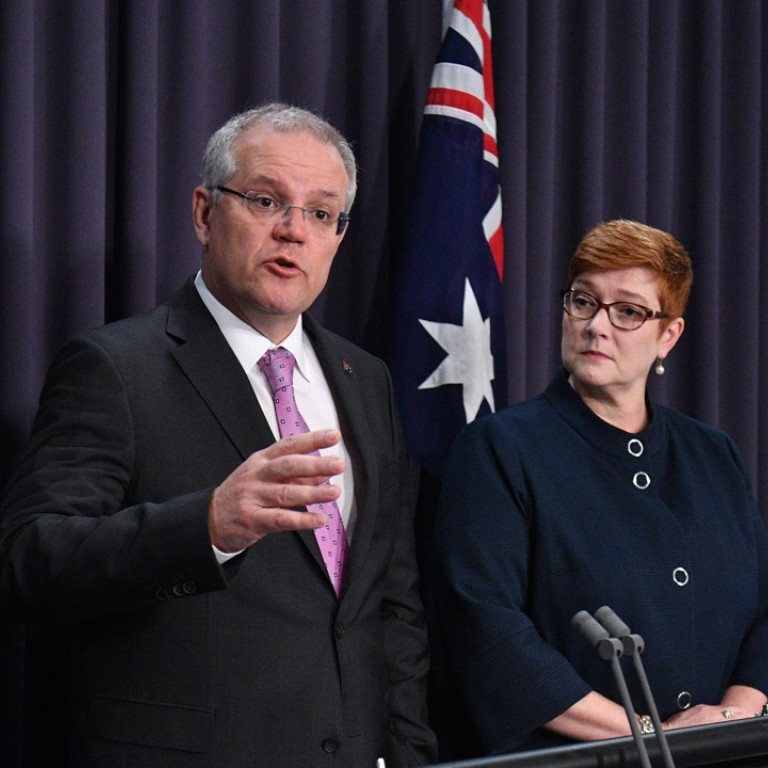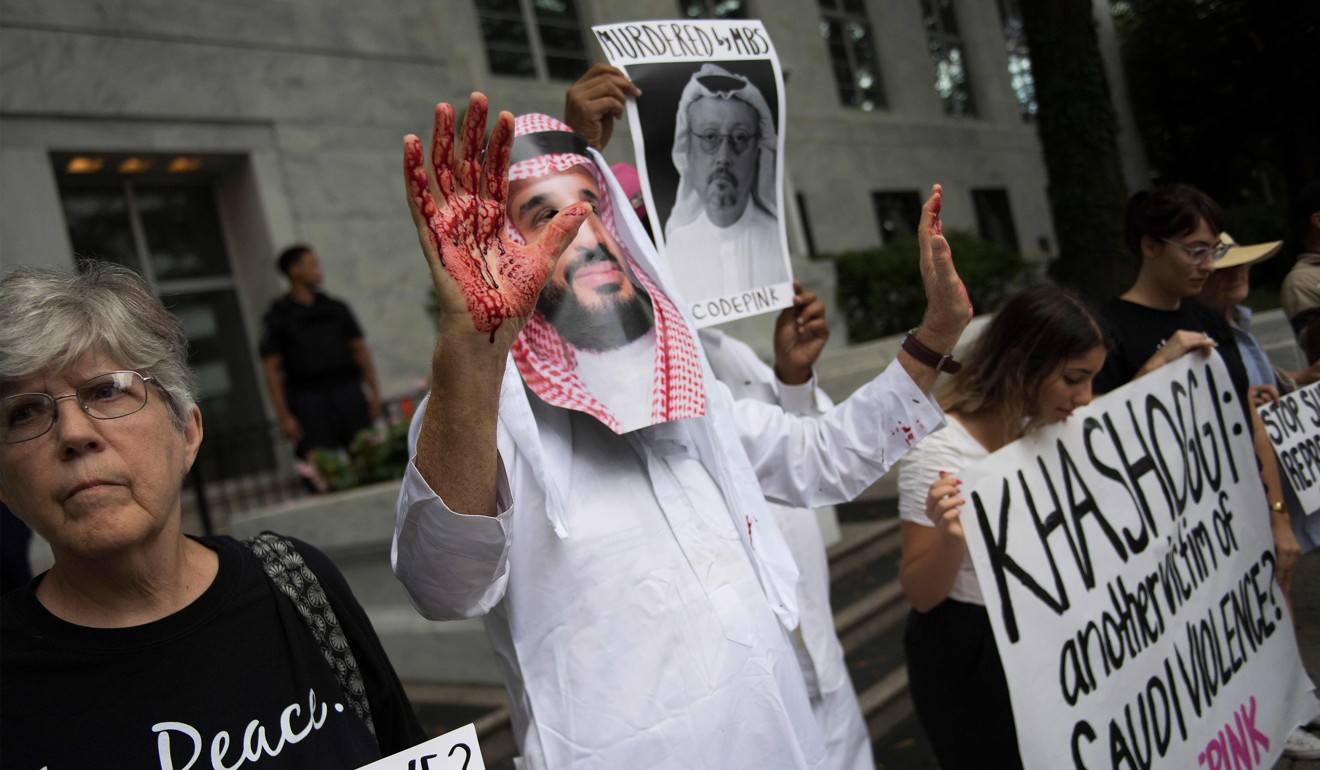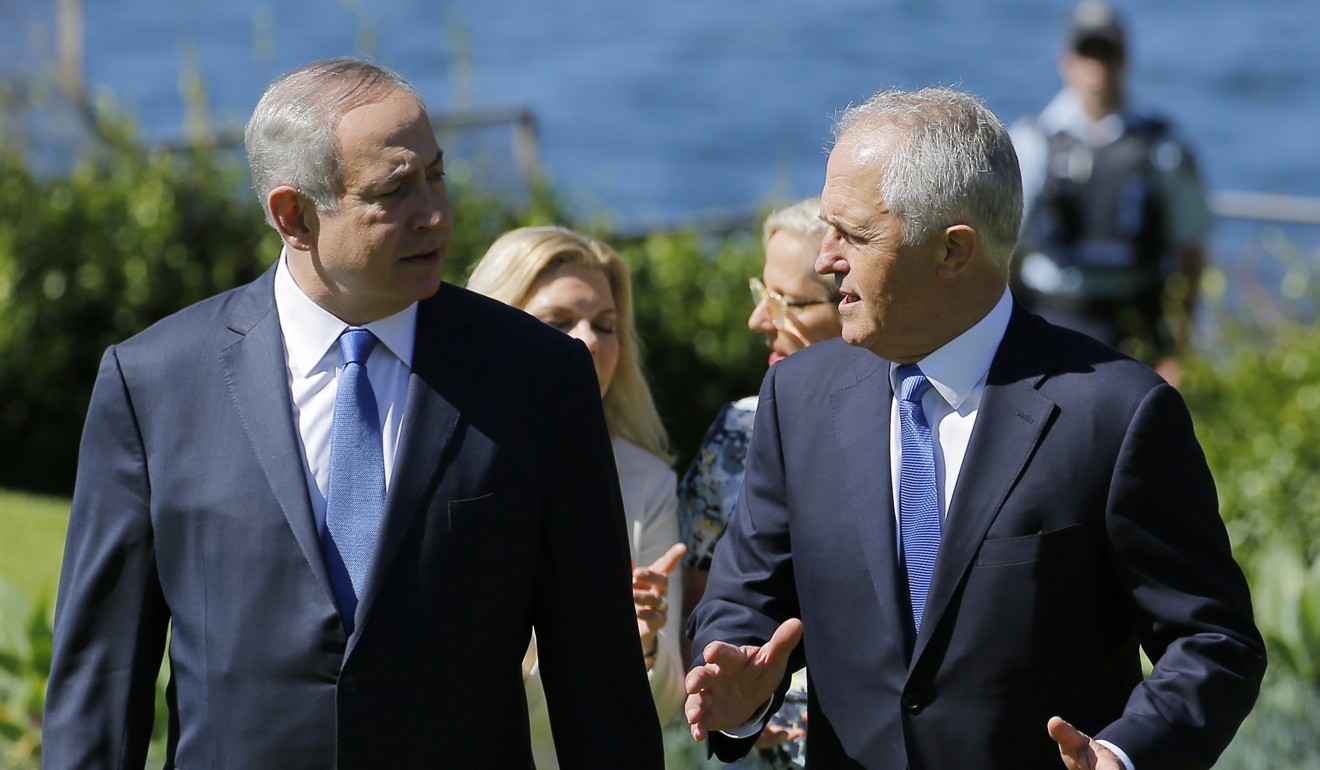
Australia should tread lightly on Jerusalem, or risk a boomerang effect
In following Trump and suggesting Canberra will recognise the city as the capital of Israel, PM Scott Morrison is risking overseas trade with the Muslim world for domestic Jewish votes he does not need
The election is important as the Liberal Party-led government only has a one-seat majority in parliament. The Wentworth seat was vacated by former prime minister Malcolm Turnbull after he was ousted from the leadership by Morrison.
Wentworth has a significant Jewish population, and has traditionally voted Liberal. The assumption is that they will reward Morrison’s remarks on Jerusalem by voting for his party, although the support for Israel’s policies among Jewish Australians is far from unanimous.
Australia’s new prime minister Scott Morrison: bad news for China?
![Graffiti in Gaza City shows US President Donald Trump and Arabic that reads, “For al-Quds [Jerusalem] and the right of return we resist”. Photo: AP](https://cdn3.i-scmp.com/sites/default/files/images/methode/2018/10/18/5ccd488a-d2cd-11e8-81a4-d952f5356e85_1320x770_215853.JPG)
However, the disappearance and alleged murder of Saudi journalist Jamal Khashoggi in the Kingdom’s consulate in Istanbul has upended the game. The ball is now firmly in the court of Turkish President Recep Tayyip Erdogan and his allies. Erdogan has made the “defence” of Jerusalem a central plank of his foreign policy. It was only a few months ago, for instance, that the Turkish leader declared that his country “would never allow Jerusalem to be stolen by Israel”.

Given the fierce international criticism of Saudi Arabia over the Khashoggi incident, Riyadh will not want to be isolated any further, and it will close ranks with the rest of the Muslim world in harshly criticising Australia should Morrison pursue the Jerusalem issue.
The Arab world’s ire is one thing. That of Australia’s neighbour, Indonesia, is quite another, and Jakarta has particular cause to be offended by Morrison’s remarks. Indonesia has been trying to open an embassy to Palestine in Ramallah for years, but has been blocked by Israel. It will not take kindly to its southern neighbour offending the Palestinians, its long-standing friends and allies. Under President Joko Widodo, Indonesia has forged even closer relations with the Palestinian leadership in Ramallah than existed previously. This relationship has been justified on the basis of returning to the politics of Pancasila (Five Pillars) associated with Indonesia’s Founding Fathers, which emphasised a just and civilised humanity and support for anti-colonial causes as expressed in Indonesia’s Constitution.
Arsonist in the house: Trump shows cynicism on Jerusalem
Just this week, Indonesia’s Foreign Minister Retno Marsudi met the Palestinian Foreign Minister Riyad al-Maliki in Jakarta, where they reaffirmed Jakarta’s support for a two-state solution, and warned Australia against moving its embassy. Retno has played a very active role in supporting the Palestinian cause by taking part in international conferences at home and abroad, and has gone out of her way to be seen with Palestinian dignitaries such as Hanan Ashrawi, whom she met at United Nations Headquarters in May.
In December 2015, Jakarta hosted the International Conference on the Question of Jerusalem, which was organised by the United Nations Committee on the Exercise of the Inalienable Rights of the Palestinian People and the Organisation for Islamic Cooperation (OIC). Indonesia has also played an active role at the UN General Assembly, including supporting Palestine’s election to chair the G77, where it has been given enhanced rights. Retno’s reported text message to her Australian counterpart Marise Payne is particularly instructive: she said “it will slap Indonesia’s face on the Palestinian issue”.
Perhaps most significantly, Indonesia will hold general elections next year, and support for the Palestinian cause is popular domestically. Australia’s ties with Indonesia, testy as they are in the best of times, will come under severe strain if Morrison follows through, particularly in economic terms, given both sides are on the verge of signing a free-trade deal worth a purported US$11 billion. The Australian PM has a measure of the delicate state of relations – his first overseas visit upon assuming the leadership, after all, was to Jakarta, where he held talks with Widodo.

If Australia recognises Jerusalem, there is likely to be a widespread and united reaction going beyond verbal denunciations. As Al-Maliki warned, Australia risks its “trade and business relationship with the rest of the world, in particular the Arab and Muslim world”.
He made this remark at a press conference in Jakarta, while he was seated next to Indonesia’s Foreign Minister. Canberra should take note.
Victor Kattan is Senior Research Fellow at the Middle East Institute of the National University of Singapore

